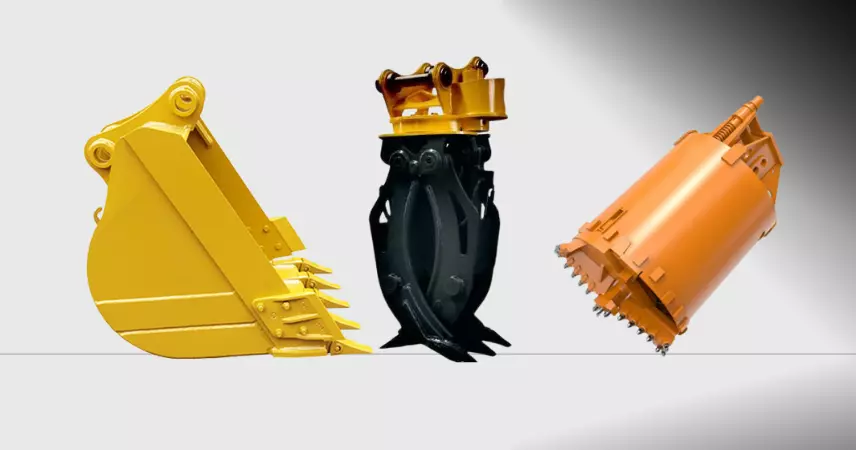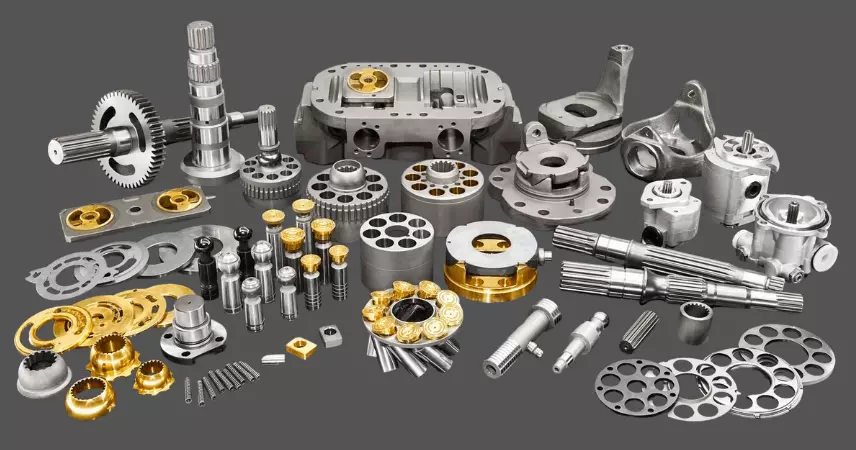+86-135 3388 0668
Introduction to 12 Volt Hydraulic pumps with Reservoir

When it comes to hydraulic systems, few pieces of equipment are as crucial as the hydraulic pump. These systems, which use pressurized fluid to transfer energy, are found in a vast array of industries, from construction to agriculture. However, not all hydraulic pumps are created equal. In recent years, the 12-volt hydraulic pump with reservoir has gained significant attention for its portability, ease of use, and powerful performance. But what exactly is a 12-volt hydraulic pump with a reservoir, and why has it become such an essential tool in various applications?
A 12-volt hydraulic pump with a reservoir is a compact, self-contained system that uses a 12-volt DC motor to generate hydraulic power. It combines the pump itself with a reservoir to store the hydraulic fluid necessary for the system’s operation. This combination allows for a highly efficient and convenient hydraulic solution, especially in situations where portability and minimal power requirements are essential.

One of the standout features of the 12-volt hydraulic pump with reservoir is its versatility. These pumps are often used in a wide range of applications, from powering dump trailers and lifts to operating machinery in remote locations. Unlike traditional hydraulic systems that require larger, more complex setups, the 12-volt version offers a portable and relatively simple alternative that still delivers reliable and powerful performance.
In addition to their versatility, these hydraulic pumps are known for their efficiency. Operating on a 12-volt DC power source, they can be powered directly from a vehicle’s battery or other low-voltage power sources. This makes them ideal for mobile applications, as they do not require external power supplies or complex electrical systems. Whether you are using it for a construction project or as part of a vehicle’s towing system, the 12-volt hydraulic pump with reservoir can get the job done without requiring excessive energy or complicated installations.
Key Components of a 12 Volt Hydraulic Pump with Reservoir
To better understand how a 12-volt hydraulic pump with a reservoir works, it’s important to break down the main components of the system. These typically include:
12-Volt DC Motor: The motor provides the necessary power to drive the pump. These motors are specifically designed for low-voltage operation, making them highly suitable for battery-powered applications.
Hydraulic Pump: The pump itself is responsible for pressurizing the hydraulic fluid, which in turn powers the connected machinery or system. In a 12-volt system, these pumps are usually Gear pumps, which offer high efficiency and durability.
Reservoir: The reservoir is where the hydraulic fluid is stored. It’s crucial for ensuring a consistent flow of fluid to the pump and maintaining the system’s pressure. The size and capacity of the reservoir can vary depending on the pump’s intended application.
Hydraulic Fluid: The fluid is essential for transmitting the power generated by the pump to the connected equipment. It’s typically a specialized oil that is formulated for hydraulic systems.
Control Valves: These valves regulate the flow of fluid through the system, allowing for precise control over the pump’s output. They are crucial for ensuring smooth operation and preventing system failures.
Applications of 12 Volt Hydraulic Pumps with Reservoir
The versatility of 12-volt hydraulic pumps with reservoirs makes them useful in a wide array of industries and applications. Some of the most common uses include:
Automotive and Trailer Systems: Many dump trailers, tow trucks, and other vehicles rely on 12-volt hydraulic pumps to operate lifting mechanisms, winches, and other heavy-duty systems. The compact size and portability of the pump make it ideal for use in these applications.
Agriculture: In farming, 12-volt hydraulic pumps are often used to power machinery such as sprayers, planters, and harvesting equipment. The ability to run on a vehicle’s battery makes it easy for farmers to operate these systems in remote locations without needing an external power source.
Construction: For lifting, moving, or adjusting heavy equipment, construction sites often use 12-volt hydraulic systems. These systems are ideal for use in portable cranes, lifts, and other Construction Machinery.
Recreational Vehicles: RVs and off-road vehicles sometimes use 12-volt hydraulic pumps for a variety of functions, including lifting jacks, slide-outs, and other hydraulic-driven systems. The ability to power these pumps from the vehicle’s existing electrical system makes them a popular choice among RV owners.
Benefits of 12 Volt Hydraulic Pumps with Reservoir
Portability and Convenience: One of the key benefits of these pumps is their portability. As they run on 12-volt DC power, they can be easily powered by a vehicle’s battery, making them ideal for mobile applications. This means that they can be used anywhere, even in remote areas, without the need for a generator or external power supply.
Energy Efficiency: 12-volt hydraulic pumps are designed to be energy-efficient. Since they use a low-voltage power source, they consume less energy compared to other hydraulic systems that rely on high-voltage power sources. This makes them both cost-effective and environmentally friendly.
Ease of Maintenance: These hydraulic pumps are typically simple in design, which translates into easier maintenance. With fewer moving parts and straightforward components, it’s easier for operators to troubleshoot and maintain the system.
Reliability: Despite their small size, 12-volt hydraulic pumps are designed to be robust and durable. They are built to withstand harsh conditions and heavy-duty use, making them a reliable choice for a wide variety of applications.
Choosing, Installing, and Maintaining 12 Volt Hydraulic Pumps with Reservoir
When selecting a 12-volt hydraulic pump with a reservoir for your application, there are several factors to consider. These factors can affect the performance, efficiency, and longevity of the system. Understanding these factors will help you make an informed decision and ensure that your pump operates at peak performance.
Key Considerations When Choosing a 12 Volt Hydraulic Pump with Reservoir
Pump Flow Rate and Pressure Rating:
The flow rate (measured in gallons per minute or GPM) and the pressure rating (measured in PSI) of the pump are critical factors to consider. The flow rate determines how much fluid can be pumped in a given amount of time, while the pressure rating determines the pump's ability to generate force. Depending on your specific needs, you may require a high-flow or high-pressure pump. It's essential to match the pump’s specifications with the demands of the equipment it will power.
Reservoir Size and Fluid Capacity:
The size of the reservoir is another important consideration. A larger reservoir can store more hydraulic fluid, which can be beneficial for longer operation times or larger systems. However, the size of the reservoir should be balanced with the available space in your application, as well as the weight and portability requirements.
Most 12-volt hydraulic pumps use a DC motor, but there are variations in the types of motors used. Some motors are designed for intermittent use, while others are built for continuous operation. Choose a motor that matches the expected workload and usage duration of your system to ensure long-term reliability.
Compatibility with Hydraulic Fluid:
Ensure that the pump and reservoir are compatible with the hydraulic fluid you intend to use. Different types of hydraulic fluid have different viscosities, and using the wrong fluid can result in poor performance or even damage to the system. Always consult the manufacturer’s recommendations for the appropriate hydraulic fluid.
Installation of 12 Volt Hydraulic Pumps with Reservoir
Installing a 12-volt hydraulic pump with a reservoir is typically a straightforward process, but it does require careful attention to detail. Below are the basic steps involved in installation:
Mount the Pump and Reservoir:
Find a suitable location to mount the pump and reservoir. This location should be close to the vehicle's battery or power source for easy connection. The mounting surface should be flat and secure to prevent vibrations and ensure stable operation.
Connect the Motor to the Power Source:
Using the appropriate wiring, connect the 12-volt motor to the vehicle's battery or other DC power source. Ensure that all connections are secure and insulated to prevent electrical shorts.
Install the Hydraulic Hoses:
Attach the hydraulic hoses to the pump’s inlet and outlet ports. These hoses will carry the hydraulic fluid to and from the pump, so ensure they are tightly secured and free of leaks.
Fill the Reservoir with Hydraulic Fluid:
Fill the reservoir with the recommended hydraulic fluid. Be sure to use the correct type of fluid as specified by the manufacturer to ensure optimal performance.
Once everything is installed, power up the system and test the pump to ensure it operates smoothly. Check for any leaks or issues, and make adjustments as necessary.
Maintenance Tips for 12 Volt Hydraulic Pumps with Reservoir
To keep your 12-volt hydraulic pump running smoothly, regular maintenance is essential. Here are some key maintenance tips to ensure longevity:
Check Hydraulic Fluid Levels: Regularly check the fluid levels in the reservoir. Low fluid levels can cause the pump to overheat or malfunction.
Inspect for Leaks: Always inspect the hydraulic hoses, connections, and pump seals for leaks. Even a small leak can result in a loss of efficiency or damage to the system.
Clean the Reservoir: Periodically clean the reservoir to remove any debris or contaminants that could affect the performance of the system.
Monitor the Motor: Ensure that the motor is running smoothly and is not overheating. If the motor starts to show signs of wear, it may need to be replaced.
The 12-volt hydraulic pump with reservoir is a powerful, efficient, and portable solution for a wide range of hydraulic applications. Its combination of simplicity, energy efficiency, and versatility makes it an excellent choice for industries ranging from automotive to agriculture and construction. By understanding its components, applications, and maintenance needs, users can get the most out of this essential tool and enjoy years of reliable service. Whether you are looking for a pump for your dump trailer, agricultural equipment, or recreational vehicle, the 12-volt hydraulic pump with reservoir offers the perfect balance of power and convenience.
Search
Blog & News